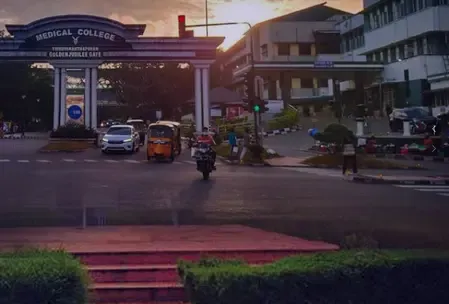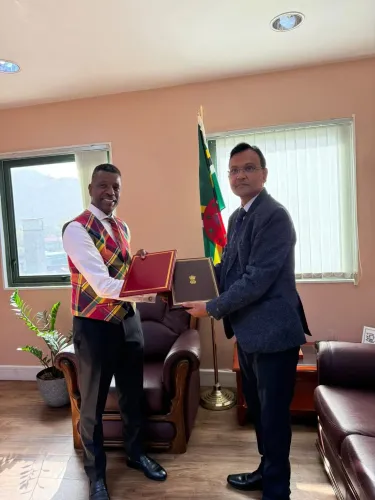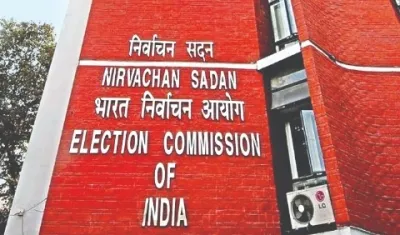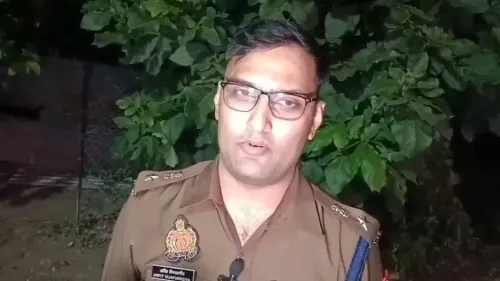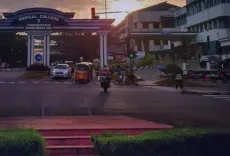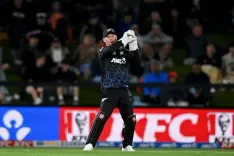Supreme Court Refuses Urgent Hearing on FIR Plea Regarding Cash Found at Judge’s Residence
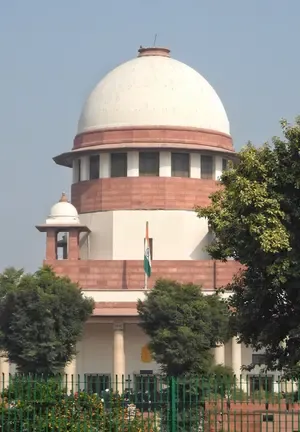
Synopsis
Key Takeaways
- Supreme Court rejects urgent hearing on FIR request.
- Allegations involve burnt cash at Justice Varma's residence.
- Concerns over potential cover-ups raised in the petition.
- Three-member committee appointed to investigate.
- Judicial corruption questioned and fundamental rights emphasized.
New Delhi, March 26 (NationPress) The Supreme Court on Wednesday refused to grant an out-of-turn hearing on a petition requesting the Delhi Police to file an FIR and conduct a thorough investigation into claims that a substantial amount of burnt cash was found at the residence of Justice Yashwant Varma of the Delhi High Court.
When the issue was brought up for urgent consideration, a bench led by CJI Sanjiv Khanna cautioned advocate Mathews J. Nedumpara, who is representing himself, against making public statements.
“Apologies, Mr. Nedumpara,” remarked CJI Khanna, adding that the registry will schedule the petition in due time.
Challenging the lack of an FIR on March 14, the day the unaccounted cash was allegedly discovered after a fire brigade responded to a fire at Justice Varma’s residence, the petition argued that the authorities' delay in making the electronic records public suggests an attempt at a cover-up.
“Why were no arrests made, why wasn't the money seized, why wasn't a mahazar prepared, and why was criminal law not initiated? Why did it take nearly a week for the public to learn about the scandal? Justice Varma has claimed that it is not his money, that he has never possessed such amounts, and he is completely taken aback. If that is the case, why didn’t he report it to the police and request an FIR for an attempt to falsely implicate him?” the petition continued.
“This situation is a clear-cut case of holding black money obtained through selling justice. Even if we consider Justice Varma’s statement, the question remains why he did not file an FIR. An FIR is essential, even if belated, to allow police to investigate the conspiracy involved,” the plea argued.
It stated: “In the case of Justice Yashwant Varma, to the petitioners' knowledge, no FIR has been lodged. Public perception indicates that every measure will be taken to cover up this matter, with initial statements about the cash recovery now being contradicted.”
Furthermore, it sought to declare that the three-member panel set up by the SC Collegium lacks jurisdiction to investigate the incident and is null and void, as it involves various cognizable offenses under the Bharatiya Nyaya Sanhita (BNS).
The petitioners argued that corruption within the judiciary significantly and directly violates the fundamental rights enshrined in Part III of the Constitution, asserting their right as citizens to petition the Supreme Court directly.
The plea challenged the ruling of a five-judge Constitution Bench in the K. Veeraswami vs. Union of India case, which stated that no criminal case should be initiated against a High Court judge, Chief Justice of a High Court, or Supreme Court judge without consulting the Chief Justice of India.
“This court's observation is rendered per incuriam, in ignorance of the law and sub silentio, without acknowledging that the police have a statutory obligation to register an FIR when they receive information about a cognizable offense, and such direction effectively restrains the police from fulfilling their statutory duties,” it stated.
The plea argued that such a directive creates a special class of judges, exempt from the penal laws of the country, obstructing the registration of an FIR even in offenses related to POCSO.
A committee of three members appointed by the Supreme Court began its investigation on Tuesday against Justice Yashwant Varma. The inquiry panel visited Justice Varma’s official residence and reportedly spent more than half an hour inside the bungalow, where a large amount of burnt cash was allegedly found in the storeroom after the fire brigade attended a blaze on March 14.
The discovery of the alleged cash, which sent shockwaves through judicial circles, prompted CJI Sanjiv Khanna to form a three-member committee to investigate the allegations against Justice Varma and instructed the Chief Justice of the Delhi High Court to refrain from assigning any judicial duties to him for the time being.
“The Chief Justice of India has established a three-member committee consisting of Mr. Justice Sheel Nagu, Chief Justice of the High Court of Punjab and Haryana, Mr. Justice G.S. Sandhawalia, Chief Justice of the High Court of Himachal Pradesh, and Ms. Anu Sivaraman, Judge of the High Court of Karnataka, to investigate the allegations against Mr. Justice Yashwant Varma, a sitting Judge of the Delhi High Court,” stated a release from the Supreme Court.
On Monday, the Delhi HC's Chief Justice D.K. Upadhyaya withdrew judicial duties from Justice Varma, who is the second senior-most judge of the Delhi High Court, until further notice.
Later that day, the Supreme Court Collegium, led by CJI Khanna, recommended that the Centre transfer Justice Varma back to the Allahabad High Court. “The Supreme Court Collegium in its meetings held on March 20 and March 24 has suggested the repatriation of Mr. Justice Yashwant Varma, Judge, High Court of Delhi, to the High Court of Judicature at Allahabad,” noted a statement on the apex court's website on Monday.

